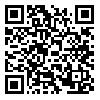دوره 10، شماره 2 - ( 10-1403 )
جلد 10 شماره 2 صفحات 94-85 |
برگشت به فهرست نسخه ها
Download citation:
BibTeX | RIS | EndNote | Medlars | ProCite | Reference Manager | RefWorks
Send citation to:



BibTeX | RIS | EndNote | Medlars | ProCite | Reference Manager | RefWorks
Send citation to:
khankeh H R, Farrokhi M, Hosseinabadi-farahani M, Saatchi M, Ahmadi S, Roudini J, et al . Challenges of Social Trust in Disaster Management Focusing on COVID-19 in Iran: Recommendations for Gaining it Again. Health in Emergencies and Disasters Quarterly 2025; 10 (2) :85-94
URL: http://hdq.uswr.ac.ir/article-1-588-fa.html
URL: http://hdq.uswr.ac.ir/article-1-588-fa.html
Challenges of Social Trust in Disaster Management Focusing on COVID-19 in Iran: Recommendations for Gaining it Again. فصلنامه سلامت در حوادث و بلایا. 1403; 10 (2) :85-94
چکیده: (3256 مشاهده)
Background: Social trust in relief organizations is one of the prerequisites for community preparedness for disasters. This study aims to explore the challenges of social trust in disaster management in Iran with a focus on the COVID-19 pandemic, and provide recommendations for building social trust.
Materials and Methods: This is a qualitative study using a conventional content analysis method. Participants were 27 lay people and managers of emergency and relief organizations in Tehran who were selected purposefully with maximum diversity. We used in-depth semi-structured interviews to explore their experiences and perceptions. Data analysis was performed using MAXQDA software, version 2018 and Graneheim and Lundman’s content analysis method.
Results: In this study, two main themes emerged, “challenges to building social trust” and “recommendations for building social trust.” The challenges had four categories: Managerial issues, misunderstanding of the situation, lack of transparency, and lack of coordination. The recommendations had three categories: Management improvement, efficient risk communication, and experience-based interventions.
Conclusion: Social trust during disasters in Iran can be improved by transparency in the performance and tasks of relief organizations, timely and accurate provision of information (risk communication), and emphasis on social participation and solving managerial issues.
Materials and Methods: This is a qualitative study using a conventional content analysis method. Participants were 27 lay people and managers of emergency and relief organizations in Tehran who were selected purposefully with maximum diversity. We used in-depth semi-structured interviews to explore their experiences and perceptions. Data analysis was performed using MAXQDA software, version 2018 and Graneheim and Lundman’s content analysis method.
Results: In this study, two main themes emerged, “challenges to building social trust” and “recommendations for building social trust.” The challenges had four categories: Managerial issues, misunderstanding of the situation, lack of transparency, and lack of coordination. The recommendations had three categories: Management improvement, efficient risk communication, and experience-based interventions.
Conclusion: Social trust during disasters in Iran can be improved by transparency in the performance and tasks of relief organizations, timely and accurate provision of information (risk communication), and emphasis on social participation and solving managerial issues.
| بازنشر اطلاعات | |
 |
این مقاله تحت شرایط Creative Commons Attribution-NonCommercial 4.0 International License قابل بازنشر است. |





